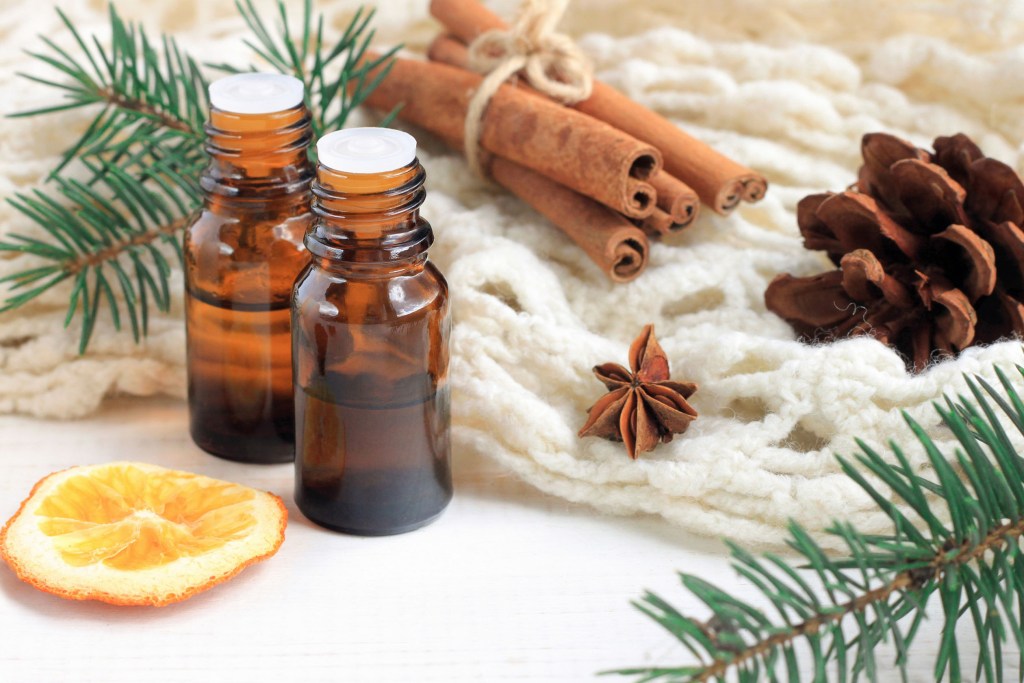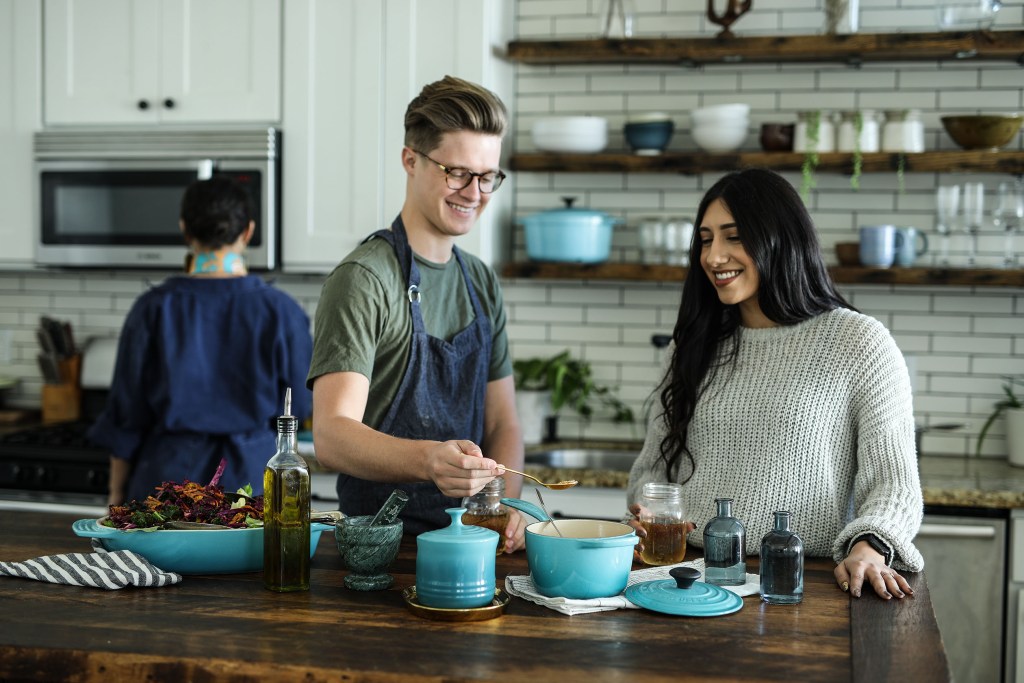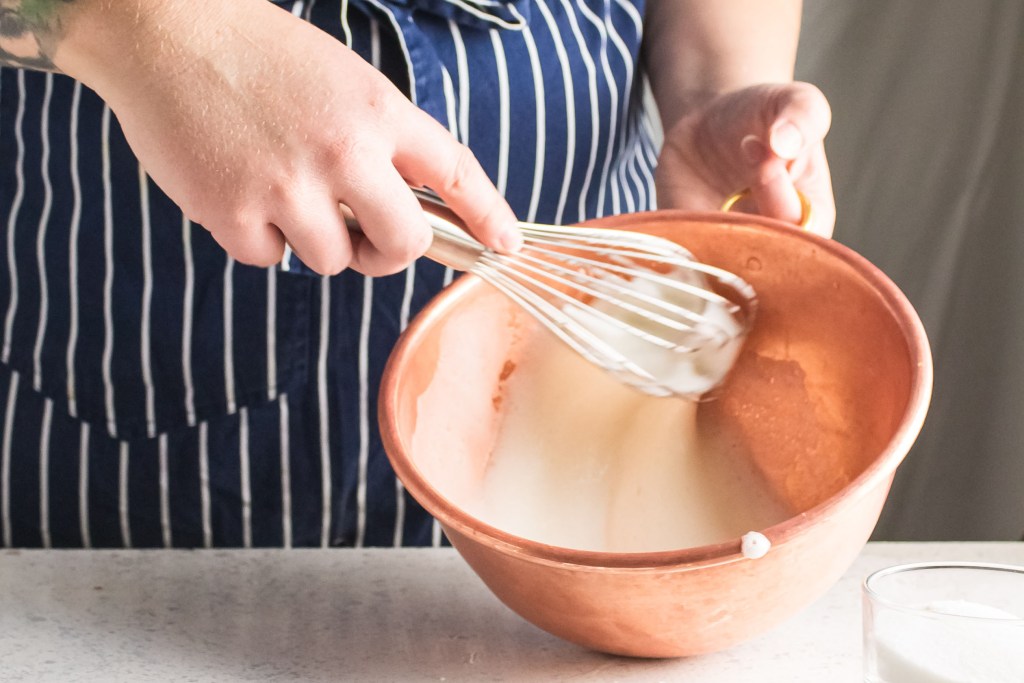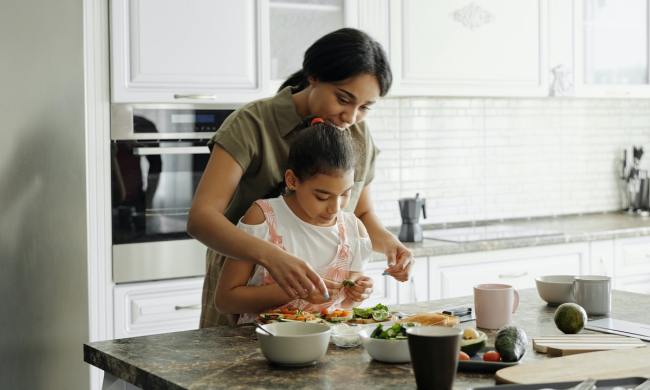Essential oils have taken over the wellness world in the last few years. These concentrated forms of the natural oils found in plants have been praised for their physical and mental health benefits, primarily because of their scents. But essential oil uses spread far beyond just aromatherapy. You can use them to freshen your home, make natural bug spray, and yes, even cook with them! Including essential oils in your fav recipes is not only safe, but it can also make your dishes more flavorful.

Are essential oils safe to ingest?
There is a common belief that all essential oils are unsafe to eat, even when cooked. This, however, is not entirely true. Not all oils are created equally — many of those produced for aromatherapy or therapeutic purposes are not suitable to ingest. If you plan to cook or bake with essential oils, only use ones that are food safe. Review this list from the FDA to learn which types of oil are harmless to ingest. And, be sure to use them properly, too (more on this below). Now it’s time to start cooking!

When should you use essential oils for cooking?
When it comes to cooking, essential oils come in handy in many scenarios. Here are a few of the most common:
• When recipes call for difficult-to-find ingredients, essential oils can make all the difference. While you may be able to find most of the ingredients at your local grocery store, some may be more difficult to come by. Lavender flowers, for example, can be difficult and expensive to buy, but lavender oil is abundant and will remain usable for much longer.
• You can also use essential oils when you need to substitute an ingredient you don’t have at home. Say a dish calls for lemon zest, but you’ve run out of fresh citrus at home. You can easily use lemon essential oil instead for a quick replacement. It’s great to stock up on citrus oils and oil versions of common spices like oregano, thyme, and cinnamon for just such situations.
• Essential oils are super concentrated, so they can really take the flavor of your dish to the next level. And you only need a few drops to get this effect. If you’re a fan of really flavorful desserts and meals, cooking with essential oils is a great idea.

The basics of cooking with essential oils
Converting to essential oils
Very few recipes actually call for essential oils (unless you specifically seek them out). But that doesn’t mean you shouldn’t use them; you just have to know how much to substitute into your favorite recipes. Remember, essential oils pack a significant flavor punch, so you only need to use a small amount. As a general rule of thumb, one drop of oil is comparable to a teaspoon of extract. You probably won’t need more than a drop or two for a full recipe.
To find a suitable substitution, you may need to rely on trial and error. Start with a drop or two and decide from there if you need more. Keep in mind that some essential oils have a very bold flavor. With cinnamon, clove, thyme, oregano, and cumin, you may want to use even less than a drop. Instead of using the dropper, dip a toothpick into the oil to pick up a tiny amount. After all, you can always add more oil if you need it, but once it’s in your dish, it’s there for good.
Dilute essential oils as needed
Before adding essential oils to your food, first dilute them into some type of fat. This makes them safer to consume and helps to ensure the flavor is spread evenly through the dish. Stir the drops into olive oil, coconut oil, or honey before adding them to your recipe.
Add oils towards the end of the cooking process
Essential oils are somewhat delicate and will evaporate quickly when they’re cooked at high heat, meaning the flavor won’t be as strong as you may want. To prevent this, add the oils as close to the end of the cooking process as possible. For stovetop dishes, stir in the diluted oil after it’s done cooking. If you are baking or using another recipe where you can’t add the oils later, throw in an extra drop or two. This will ensure the flavor still comes through in the end.
Now that you know the essentials of cooking with oils, you can begin experimenting. You can try out recipes with unusual ingredients or make last-minute substitutions. Start with a few simple swaps to see which recipes you like best. And remember, essential oils are very concentrated. Use only a few drops, and you’ll be good to go!


